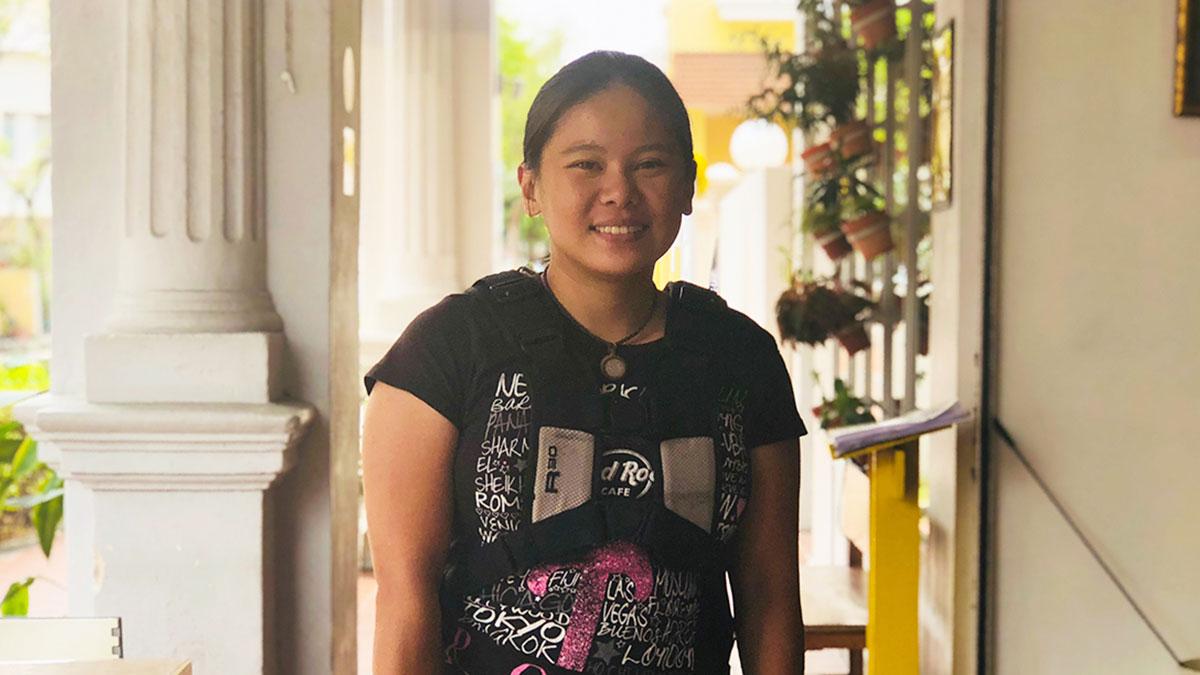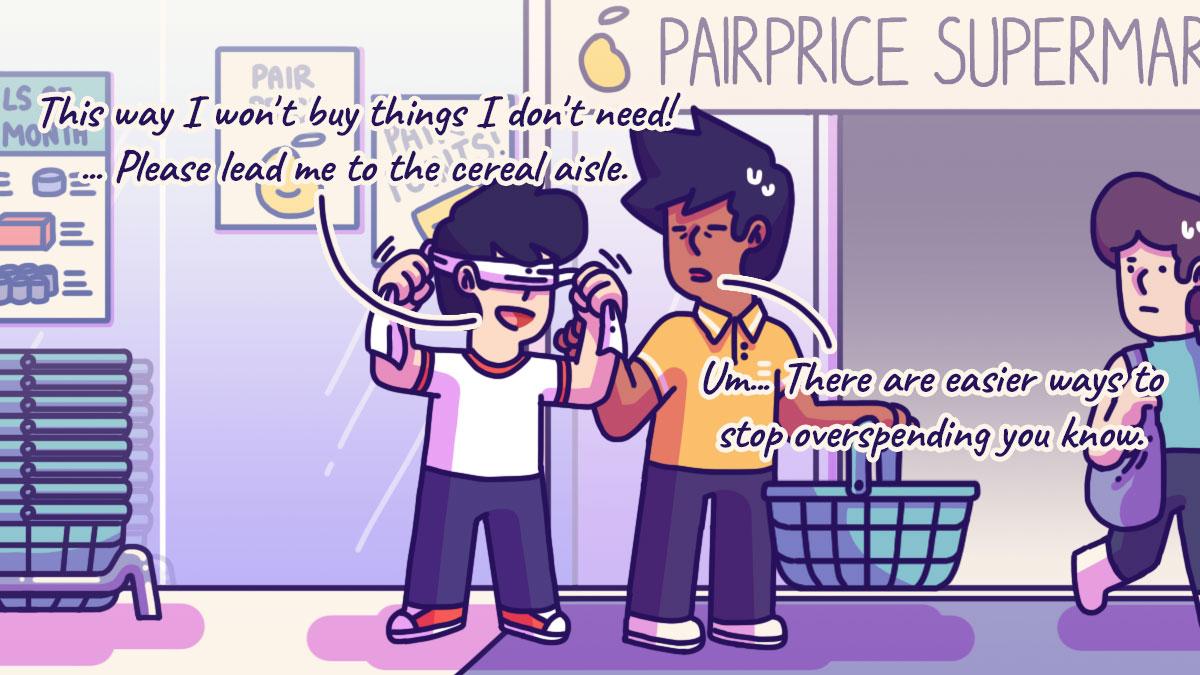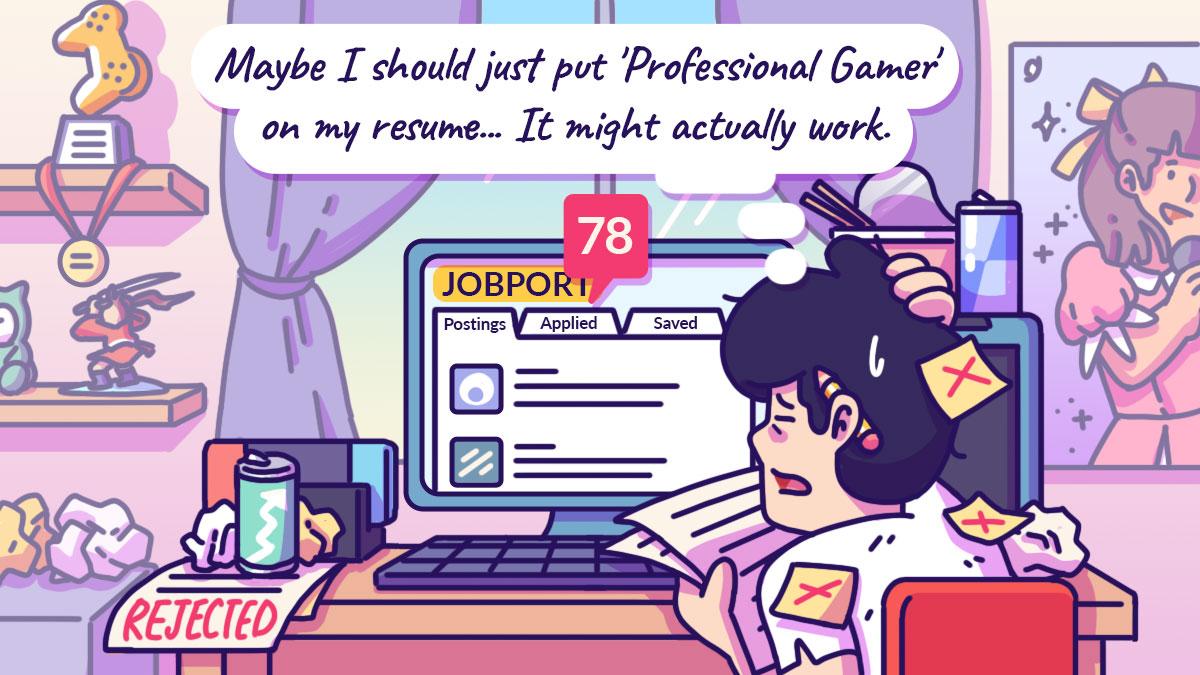I’m a millennial. I crave instant gratification and I’m risk-averse – I like the safety of a nine-to-five. Though I’ve toyed with the idea of working abroad, the fear of leaving friends and family behind always held me back. That, and loneliness.Then I met Juvena Huang, known as
@thewanderingwasp. a plucky individual who gave me some hope. Since young, she had always wanted to attempt a big adventure trip. The catalyst finally came when a dear friend – a fellow adventure rider – died abruptly in a car accident. She then knew it was time to make her one shot at
living, and put plans she had laid into motion.So, she pulled the trigger and she quit her job, hopping on her old Vespa to leave Singapore to see the rest of the world. Then aged 27, she spent the next 27 months exploring 25 countries within Asia, Middle East, the Balkans and Europe, all alone.[caption id="attachment_4956" align="aligncenter" width="768"]
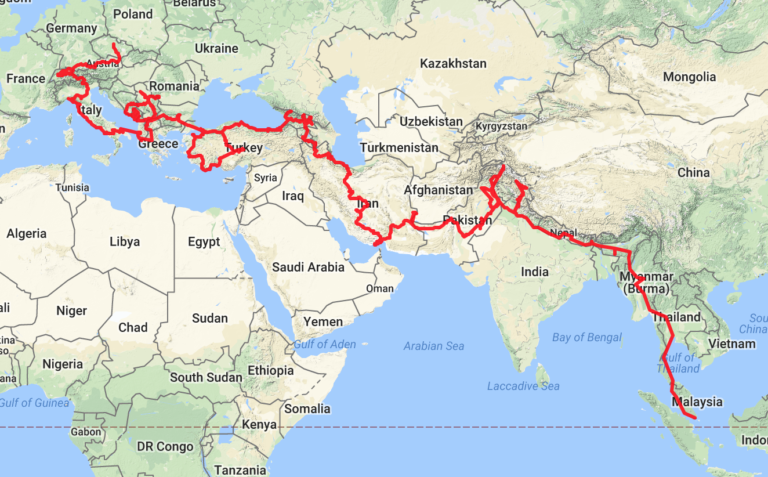
From Singapore to Czechia[/caption]
Many of us dream of taking a trip like hers, but our inner-demons hold us back.
Stuff like this are only for rich people. It’s impossible for us to survive so long without working – it’s too expensive and it will disrupt our careers. But these worries didn’t faze Juvena.
So firstly, how did she save up for it? “I started saving after university,” Juvena recalls. “I changed my lifestyle. I moonlighted as a waitress and videographer’s assistant, gave up going to the movies, and quit expensive hobbies, like dirt biking. I’d put at least $1,000 aside monthly, and capped my spending at $700. I’d only buy the things I needed, and any extra would go back into the pile.”
And once she saved $23,000, she was off.[caption id="attachment_4955" align="aligncenter" width="768"]
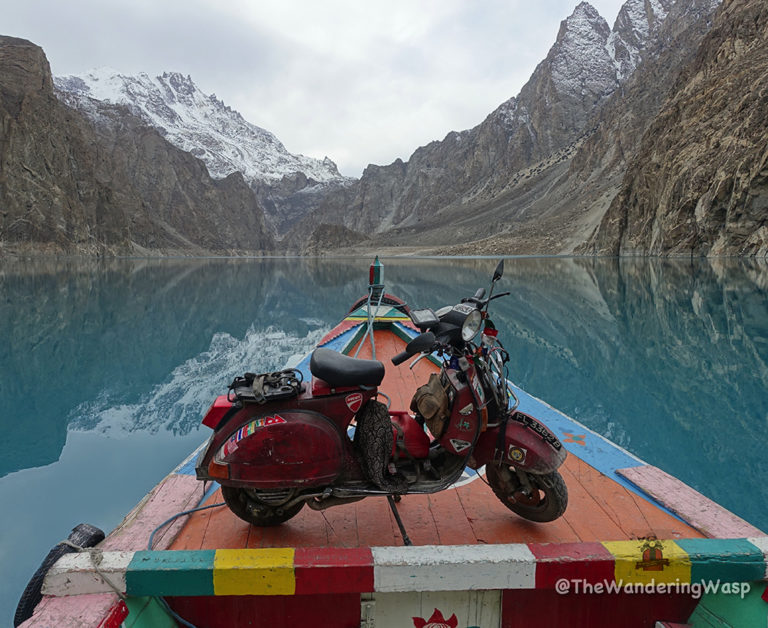
To see stuff like this[/caption]
On the trip, She lived on a shoestring budget, setting aside $25 a day, or a budget of $852 a month. She sustained on kindness too. Strangers opened their homes, a Turkish policeman quietly paid for her meal, and in Montenegro, a group of bikers gave her 50 Euros, just because. She subsisted on her savings, three sets of clothing, some tools and winter gear, and of course, her beaten-up Vespa.[caption id="attachment_4954" align="aligncenter" width="768"]
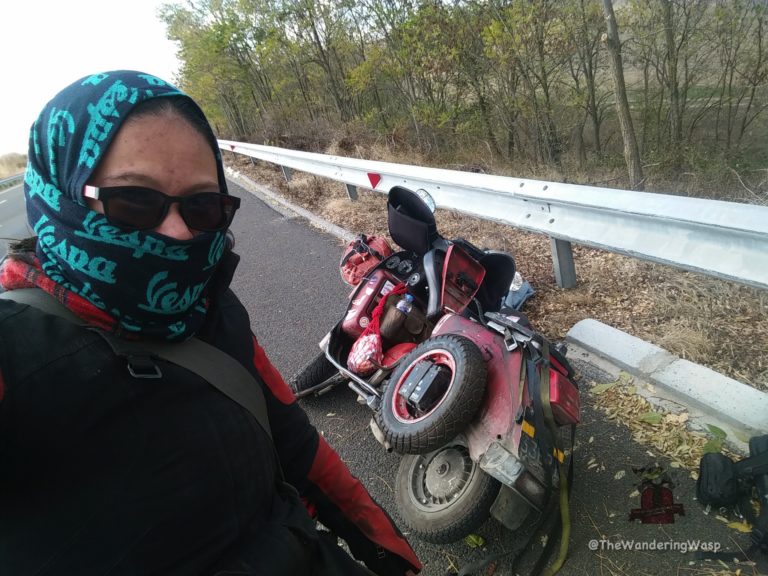
Fixing a flat in Turkey[/caption]
Until she left for sabbatical, she didn’t realise how much she derived comfort and purpose from living in the moment. “As long as I’m healthy and I can work, I’m happy,” she reckons. “If I can generate income while I travel, that would be the most ideal.”
“It’s a very delicate balance,” Juvena shared. “If I want to do something, I’ll just do it. At the same time, I know I need to prepare for rainy days. I’ll never rely on a loan or travel till I’m broke. If you cannot afford, don’t force it. Don’t feel the pressure to keep up with everyone else. What do you want? Extravagance or a peace of mind?”
Still, many people assume Juvena can travel because she’s rich.
“But hey, I don’t own expensive bikes, I don’t keep up with the Joneses and I’ve got this crappy phone. Money is a tool, not the goal,” she added. So, she had no secret recipe, she simply planned hard and was willing to change her lifestyle drastically to make it happen.
One can conclude that her upbringing contributed to her resilient nature. Brought up in a regular, middle-income family in Bedok, her mother always left her to fend for herself, and allowed her to make her own decisions. She also taught Juvena that it’s important to be financially independent and never to rely on her spouse, even when she gets married.
I was curious if a part of her was afraid that a 27-month sabbatical would disrupt her career.
“When you let go of something, you’re allowing other new opportunities to show up,” she explained. “It’s so easy to get comfortable here, everything is so convenient. When you’re not tied down to your former life, and if you’re humble and willing to learn, you can survive. The day I wrote my resignation letter was scary. I’d been working all my life and never gone without a job before, but once you step out, you just go with the flow.”
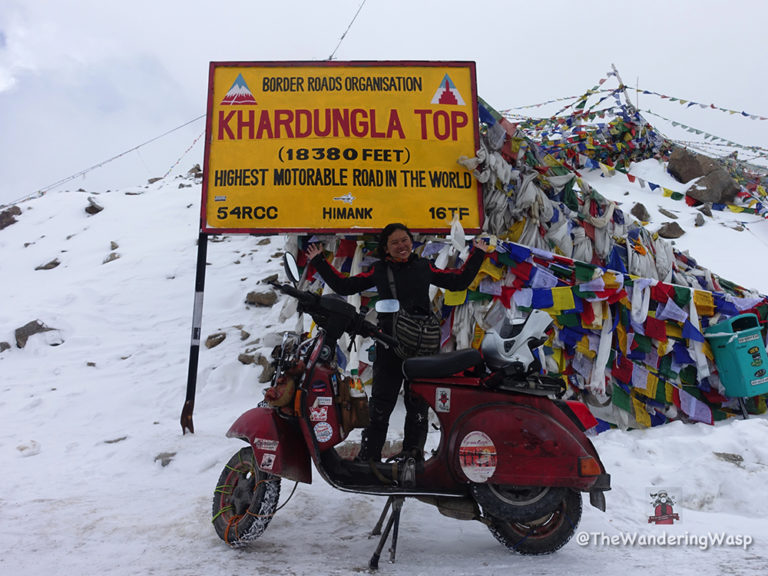
Upon her return from her trip – more than 2 years later – Juvena experienced reverse culture shock. Back home, as she rummaged through her possessions, she realised she didn’t miss them one bit – It didn’t spark joy.
It’s slightly ironic, that back home she felt foreign when she spoke to her peers. “I feel like I don’t speak the same language anymore,” she laments. “On the road, people don’t judge you for what you wear. Back here, you have to fit into societal expectations again.” She found herself displaced from consumerism – she prized her experiences on the road over owning
stuff.
Since her return, she’s been supporting herself by working for
Singapore Sidecars, giving tuition and teaching yoga. She gives talks on occasion, and has thoughts about starting a tour company to take people off the beaten track, like Pakistan.[caption id="attachment_4952" align="aligncenter" width="768"]
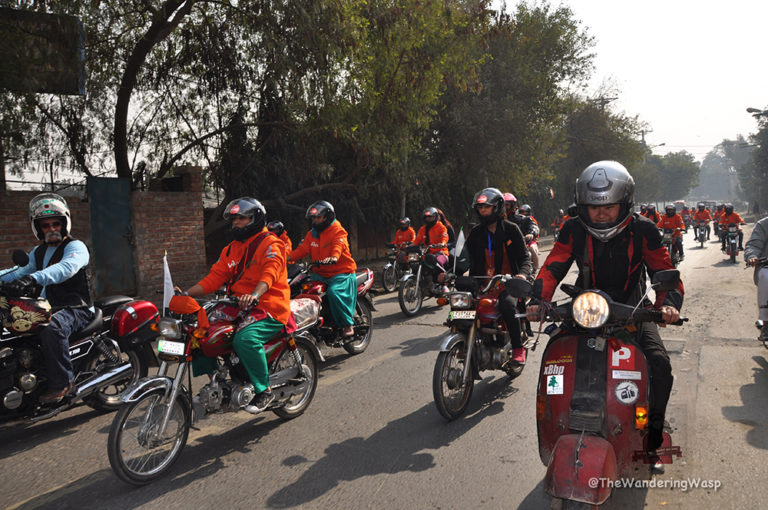
Pakistan[/caption]
As for her endgame?
“Death! We are all going to die anyway. People keep asking me, ‘when are you going to settle down?’ Well, I’ll be settling down six feet under, and when that happens, I’d like to be remembered as a free-spirited person who enjoyed challenging one’s limits. Someone who’s given others just a little bit of hope, maybe.”
 From Singapore to Czechia[/caption]
Many of us dream of taking a trip like hers, but our inner-demons hold us back. Stuff like this are only for rich people. It’s impossible for us to survive so long without working – it’s too expensive and it will disrupt our careers. But these worries didn’t faze Juvena.
So firstly, how did she save up for it? “I started saving after university,” Juvena recalls. “I changed my lifestyle. I moonlighted as a waitress and videographer’s assistant, gave up going to the movies, and quit expensive hobbies, like dirt biking. I’d put at least $1,000 aside monthly, and capped my spending at $700. I’d only buy the things I needed, and any extra would go back into the pile.”
And once she saved $23,000, she was off.[caption id="attachment_4955" align="aligncenter" width="768"]
From Singapore to Czechia[/caption]
Many of us dream of taking a trip like hers, but our inner-demons hold us back. Stuff like this are only for rich people. It’s impossible for us to survive so long without working – it’s too expensive and it will disrupt our careers. But these worries didn’t faze Juvena.
So firstly, how did she save up for it? “I started saving after university,” Juvena recalls. “I changed my lifestyle. I moonlighted as a waitress and videographer’s assistant, gave up going to the movies, and quit expensive hobbies, like dirt biking. I’d put at least $1,000 aside monthly, and capped my spending at $700. I’d only buy the things I needed, and any extra would go back into the pile.”
And once she saved $23,000, she was off.[caption id="attachment_4955" align="aligncenter" width="768"] To see stuff like this[/caption]
On the trip, She lived on a shoestring budget, setting aside $25 a day, or a budget of $852 a month. She sustained on kindness too. Strangers opened their homes, a Turkish policeman quietly paid for her meal, and in Montenegro, a group of bikers gave her 50 Euros, just because. She subsisted on her savings, three sets of clothing, some tools and winter gear, and of course, her beaten-up Vespa.[caption id="attachment_4954" align="aligncenter" width="768"]
To see stuff like this[/caption]
On the trip, She lived on a shoestring budget, setting aside $25 a day, or a budget of $852 a month. She sustained on kindness too. Strangers opened their homes, a Turkish policeman quietly paid for her meal, and in Montenegro, a group of bikers gave her 50 Euros, just because. She subsisted on her savings, three sets of clothing, some tools and winter gear, and of course, her beaten-up Vespa.[caption id="attachment_4954" align="aligncenter" width="768"] Fixing a flat in Turkey[/caption]
Until she left for sabbatical, she didn’t realise how much she derived comfort and purpose from living in the moment. “As long as I’m healthy and I can work, I’m happy,” she reckons. “If I can generate income while I travel, that would be the most ideal.”
“It’s a very delicate balance,” Juvena shared. “If I want to do something, I’ll just do it. At the same time, I know I need to prepare for rainy days. I’ll never rely on a loan or travel till I’m broke. If you cannot afford, don’t force it. Don’t feel the pressure to keep up with everyone else. What do you want? Extravagance or a peace of mind?”
Still, many people assume Juvena can travel because she’s rich.
“But hey, I don’t own expensive bikes, I don’t keep up with the Joneses and I’ve got this crappy phone. Money is a tool, not the goal,” she added. So, she had no secret recipe, she simply planned hard and was willing to change her lifestyle drastically to make it happen.
One can conclude that her upbringing contributed to her resilient nature. Brought up in a regular, middle-income family in Bedok, her mother always left her to fend for herself, and allowed her to make her own decisions. She also taught Juvena that it’s important to be financially independent and never to rely on her spouse, even when she gets married.
I was curious if a part of her was afraid that a 27-month sabbatical would disrupt her career.
“When you let go of something, you’re allowing other new opportunities to show up,” she explained. “It’s so easy to get comfortable here, everything is so convenient. When you’re not tied down to your former life, and if you’re humble and willing to learn, you can survive. The day I wrote my resignation letter was scary. I’d been working all my life and never gone without a job before, but once you step out, you just go with the flow.”
Fixing a flat in Turkey[/caption]
Until she left for sabbatical, she didn’t realise how much she derived comfort and purpose from living in the moment. “As long as I’m healthy and I can work, I’m happy,” she reckons. “If I can generate income while I travel, that would be the most ideal.”
“It’s a very delicate balance,” Juvena shared. “If I want to do something, I’ll just do it. At the same time, I know I need to prepare for rainy days. I’ll never rely on a loan or travel till I’m broke. If you cannot afford, don’t force it. Don’t feel the pressure to keep up with everyone else. What do you want? Extravagance or a peace of mind?”
Still, many people assume Juvena can travel because she’s rich.
“But hey, I don’t own expensive bikes, I don’t keep up with the Joneses and I’ve got this crappy phone. Money is a tool, not the goal,” she added. So, she had no secret recipe, she simply planned hard and was willing to change her lifestyle drastically to make it happen.
One can conclude that her upbringing contributed to her resilient nature. Brought up in a regular, middle-income family in Bedok, her mother always left her to fend for herself, and allowed her to make her own decisions. She also taught Juvena that it’s important to be financially independent and never to rely on her spouse, even when she gets married.
I was curious if a part of her was afraid that a 27-month sabbatical would disrupt her career.
“When you let go of something, you’re allowing other new opportunities to show up,” she explained. “It’s so easy to get comfortable here, everything is so convenient. When you’re not tied down to your former life, and if you’re humble and willing to learn, you can survive. The day I wrote my resignation letter was scary. I’d been working all my life and never gone without a job before, but once you step out, you just go with the flow.” Upon her return from her trip – more than 2 years later – Juvena experienced reverse culture shock. Back home, as she rummaged through her possessions, she realised she didn’t miss them one bit – It didn’t spark joy.
It’s slightly ironic, that back home she felt foreign when she spoke to her peers. “I feel like I don’t speak the same language anymore,” she laments. “On the road, people don’t judge you for what you wear. Back here, you have to fit into societal expectations again.” She found herself displaced from consumerism – she prized her experiences on the road over owning stuff.
Since her return, she’s been supporting herself by working for Singapore Sidecars, giving tuition and teaching yoga. She gives talks on occasion, and has thoughts about starting a tour company to take people off the beaten track, like Pakistan.[caption id="attachment_4952" align="aligncenter" width="768"]
Upon her return from her trip – more than 2 years later – Juvena experienced reverse culture shock. Back home, as she rummaged through her possessions, she realised she didn’t miss them one bit – It didn’t spark joy.
It’s slightly ironic, that back home she felt foreign when she spoke to her peers. “I feel like I don’t speak the same language anymore,” she laments. “On the road, people don’t judge you for what you wear. Back here, you have to fit into societal expectations again.” She found herself displaced from consumerism – she prized her experiences on the road over owning stuff.
Since her return, she’s been supporting herself by working for Singapore Sidecars, giving tuition and teaching yoga. She gives talks on occasion, and has thoughts about starting a tour company to take people off the beaten track, like Pakistan.[caption id="attachment_4952" align="aligncenter" width="768"] Pakistan[/caption]
As for her endgame?
“Death! We are all going to die anyway. People keep asking me, ‘when are you going to settle down?’ Well, I’ll be settling down six feet under, and when that happens, I’d like to be remembered as a free-spirited person who enjoyed challenging one’s limits. Someone who’s given others just a little bit of hope, maybe.”
Pakistan[/caption]
As for her endgame?
“Death! We are all going to die anyway. People keep asking me, ‘when are you going to settle down?’ Well, I’ll be settling down six feet under, and when that happens, I’d like to be remembered as a free-spirited person who enjoyed challenging one’s limits. Someone who’s given others just a little bit of hope, maybe.”
